Search Results
Showing results 241 to 260 of 296
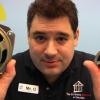
Speak to Me
Source Institutions
In this activity, learners will create a speaker using a paper cup, magnet, and enameled wire. Also included in this activity is a Mr.
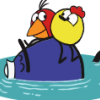
From Here to There
Source Institutions
In this water activity, learners discover ways to move water across the water table.
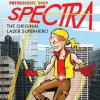
How Thick is Your Hair?
Source Institutions
In this activity on page 13 of the PDF, learners use a laser pointer (with known wavelength of light) to measure the thickness of a human hair.
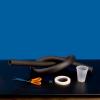
Build a Roller Coaster
Source Institutions
Learners design and build a roller coaster using simple materials. Learners experiment with potential and kinetic energy to get a marble to follow a track into a cup.
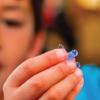
Delivery Capsules
Source Institutions
Learners make self-assembled polymer spheres as a model for the lipid nanoparticles found in COVID-19 mRNA vaccines.
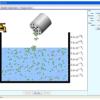
Salts & Solubility
Source Institutions
In this online interactive simulation, learners will add different salts to water and then watch the salts dissolve and achieve a dynamic equilibrium with solid precipitate.
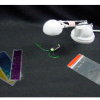
Why are Compact Fluorescent Bulbs More Efficient?
Source Institutions
In this activity, learners explore the relative efficiency of different bulbs, specifically incandescent vs. fluorescent.
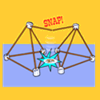
Spaghetti Bridge
Source Institutions
Play with your food while learning about engineering! Build a spaghetti bridge, then test its strength by piling on the marshmallows, raw spaghetti, raw linguine and coins.
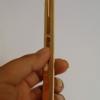
Flat Flashlight
Source Institutions
In this activity, learners build a tiny but powerful flashlight out of simple materials. Use this activity to introduce learners to electrical circuits and conductivity.
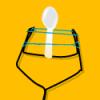
Catapult
Source Institutions
Build a catapult that transforms the potential energy of a twisted rubber band into kinetic energy. Experiment with design variations so that you can hit a target with a projectile.
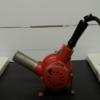
Rubber Band Thermodynamics
Source Institutions
In this demonstration, learners explore the thermal properties of rubber. Learners investigate whether a rubber band contracts or expands when heated.
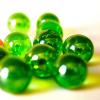
Big Wave
Source Institutions
This is an activity about waves. Using marbles, paper clips and rubber bands, learners explore how waves behave.
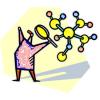
DNA Detective
Source Institutions
This activity is about collecting and analyzing DNA as part of a criminal investigation.

Soaring Satellites
Source Institutions
Working in small teams, learners try to build a satellite that can float for at least five seconds in the marked area of a vertical wind tube.
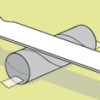
Set It Straight
Source Institutions
In this activity, learners build a simple tabletop seesaw to test how different variables (the position of the fulcrum, distance, weight) affect its balance under increasing weight loads.

Make a Totem Pole
Source Institutions
In this activity (on page 2 of PDF), learners make their own totem poles out of recycled materials.

Critical Angle
Source Institutions
In this optics activity, learners examine how a transparent material such as glass or water can actually reflect light better than any mirror.
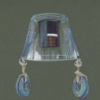
Submarine: Soda Cup Lander
Source Institutions
In this activity (on page 2), learners create a submarine using a plastic cup. This is a fun way to learn about buoyancy and density.
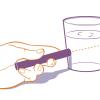
Beam Me Up!
Source Institutions
This is a quick activity (on page 2 of the PDF under Stained Glass Activity) about the "Tyndall effect," the scattering of visible light when it hits very small dispersed particles.
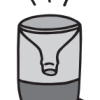
Water Filter
Source Institutions
In this engineering activity, challenge learners to invent a water filter that cleans dirty water.
